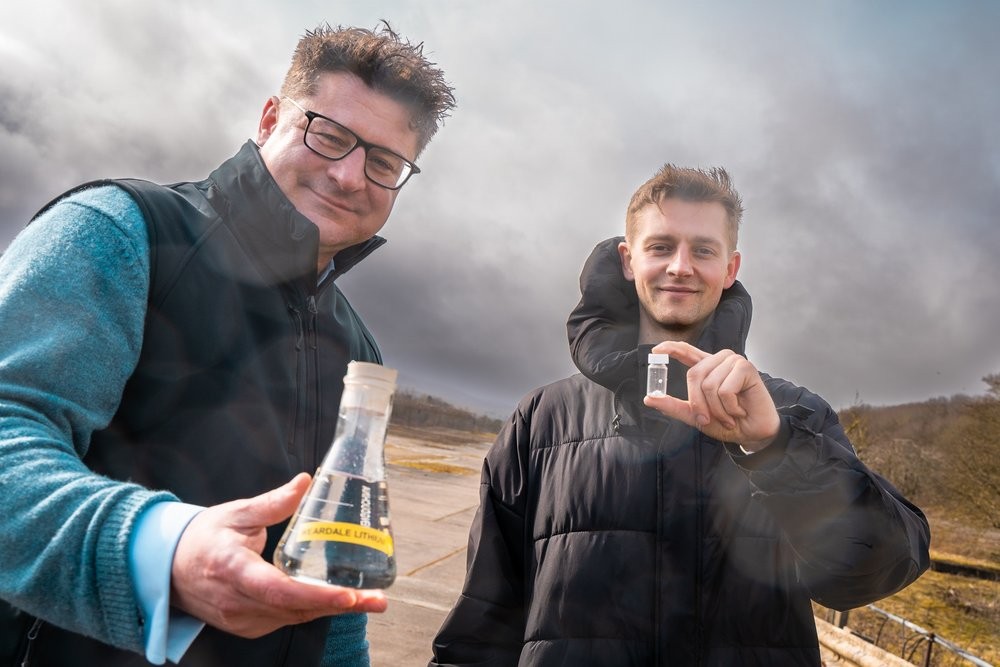A University spin-out fuelling the battery revolution in the UK
For the first time in the UK, scientists have been able to recover commercial grade lithium carbonate and graphite from black mass; a solid black powder containing a complex mixture of metals and impurities recovered from recycling end-of-life lithium-ion batteries. The UK-first is a major step forward for sustainability in battery technology.
, founded by University of 69��ýalumnus, , has recovered commercial grade lithium carbonate and graphite from black mass; a solid black powder containing a complex mixture of metals and impurities recovered from the recycling of end-of-life lithium-ion batteries.
Conducted in partnership with globally renowned precious metal recovery specialists, , and with access to Graphene Engineering Innovation Centre's (GEIC) world-leading capabilities and the support of its expert facilities team, the test work on 1 kg of black mass validates the Watercycle’s ground-breaking technology. It underpins the major contribution that deep tech university spin outs are playing in championing the UK’s ambitions for the energy transition and the attainment of a circular economy.
WaterCycle Technologies Ltd. are a Tier 2 partner of the GEIC, the University’s world-class, multi-million-pound engineering centre which provides industry-led development in graphene applications, bringing real-world products to market.
Watercycle CEO Dr Seb Leaper said, “To most people it is not obvious that one of the main barriers to achieving Net Zero is the availability of critical minerals like lithium. But we must ensure that the means of accessing these minerals is environmentally responsible. This requires sustainable primary production and efficient recycling technology, which is what we are creating at Watercycle. We are proud to be a University of 69��ýspinout and are proud to be working with two fantastic northern companies in RSBruce and Weardale Lithium who are making the UK’s domestic lithium supply chain possible.”
This breakthrough marks the first step forward in commercialising Watercycle’s technology.
To most people it is not obvious that one of the main barriers to achieving Net Zero is the availability of critical minerals like lithium. But we must ensure that the means of accessing these minerals is environmentally responsible. This requires sustainable primary production and efficient recycling technology, which is what we are creating at Watercycle. We are proud to be a University of 69��ýspinout and are proud to be working with two fantastic northern companies in RSBruce and Weardale Lithium who are making the UK’s domestic lithium supply chain possible.
James Baker, CEO of Graphene@Manchester, said: “The Graphene Engineering Innovation Centre provides partners within the rapid development and scale-up of R&D, the support to bring real world products to market. In particular, the gives companies like Watercycle Technologies the opportunity to bring innovation and research into the tough world of commercialisation, and to amplify prototypes through the conduction of leading edge benchtop experiments.
“By supporting partners in this way, we can also support Manchester’s regional and national competitiveness, in turn attracting world-class businesses and high-quality jobs to the companies we’re helping to commercialise.”
in collaboration with RSBruce, demonstrating the significant opportunity to recover value-added products from Black Mass processing using Watercycle’s system and both companies are now in the process of finalising a developed pilot plan.
Corresponding to this phenomenal achievement, the team have found success in producing lithium carbonate from another source, establishing a step further to supporting UK’s ambitions to produce a domestic supply of lithium to power the domestic energy transition, and the UK Government’s goals of achieving net zero.
At its laboratory in the GEIC, the company applied its proprietary Direct Lithium Extraction & Crystallisation process (DLEC™) to successfully produce lithium carbonate crystals from brines, extracted from Weardale Lithium Limited’s existing geothermal boreholes at Eastgate, in County Durham.
.
